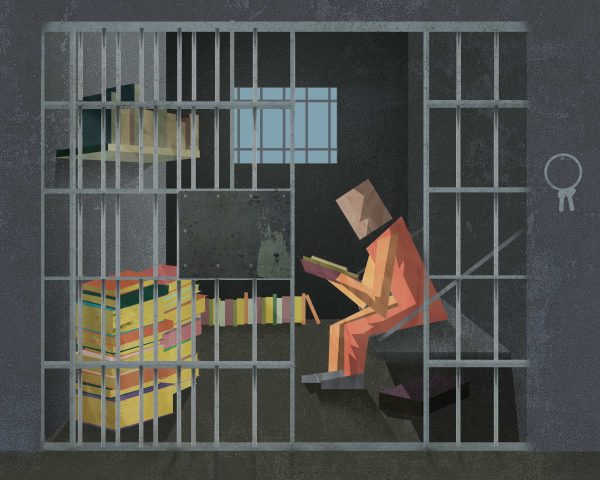
According to the American Library Association, 92.5% of books that were banned in 2020 contained sexual content, 23.5% contained LGBTQ+ content and 26% contained religious viewpoints. Skye Bawol | Washtenaw Voice
Lexi Stephens
Contributor
When I was seven years old, I read my first banned book: “Captain Underpants” by Dav Pilkey. I fell in love with these silly comics and begged my parents to buy me the whole set, so they did. It was crazy to me that books that are targeted for ages five and over could be banned for “violent imagery” and LGBTQ+ content because kids are going to experience all of that in their life eventually. Why would that content be banned when it’s inevitable to witness? According to the American Library Association, 92.5% of books that were banned in 2020 contained sexual content, 23.5% contained LGBTQ+ content and 26% contained religious viewpoints.
Molly Ledermann, a professional librarian, said “Books are banned for a wide variety of reasons. Sometimes it’s because of somebody’s own religious beliefs or philosophical views.” It’s important that we recognize the fact that when books are banned, it’s not really a majority rules type of situation. Ethan O’brien, a WTMC English teacher, said, “I would meet with my colleagues and ask, ‘Does this book have educational value?’ If it does, I would look at the delivery because if the message is good but the delivery is questionable, that might cause me not to teach the book.”
“Lolita” by Vladimir Nabolkov is an example of a book that could be interpreted as ‘perilous’ or ‘edgy’ but so important to know about because it’s an example of what we don’t want in the world. By reading these types of books, we can interpret the steps that we need to not take in order to not repeat history.
Adam Sherfield, a WTMC English teacher, said, “I think that even the worst literature has merit in being an example of what we don’t want in the world and we need examples of what we don’t want in the world. Ideas should never be silenced regardless of whether they’re unpopular or offensive.”
To me, this is important because peoples’ opinions on what is offensive vary so extensively that nothing should be hidden or monetized.
Maryam Barrie, a WCC professor who teaches a wide variety of English courses, shared some insightful information, saying, “I don’t think books should be banned … I think books can be dangerous but it’s good for us to know what they are.”
Most of the time, the decision to ban the book is made without thinking about how other people would feel, just think about how it made the person who is trying to ban the book feel. Probably pretty bad, right?
In our modern world, reading is so important for people of all ages. So I say, read the banned books, challenge yourself to read things that contradict what you may think because it’s important to know the thought process behind what other people think as well.

